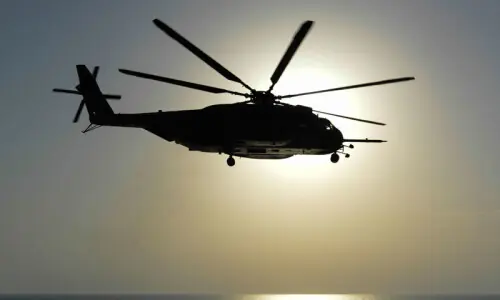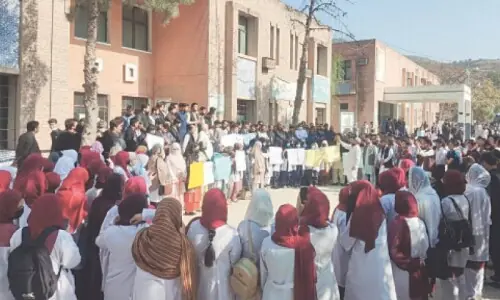RECENT cross-border hostilities between Hezbollah and Israel have sent up red flags, with the UN monitoring team in the region terming the situation “very dangerous”. While rocket attacks into Israel reportedly carried out by Palestinian groups based in Lebanon are thought to have triggered the latest crisis, the situation has rapidly turned into a confrontation between Israel and its arch-nemesis Hezbollah, the powerful Lebanese political party and armed group backed by Iran. Many see the exchange as part of a wider regional struggle between Israel and its allies and Iran and its affiliates. Tensions between both camps have been high of late; as recently as last month an oil tanker owned by an Israeli company was targeted in a deadly drone attack in the Gulf of Oman. Israel and its Western friends have blamed Iran for the attack, though Tehran has denied it was involved. The skirmishes in Lebanon may well be connected to this incident. However, both Hezbollah and Israel have said that while they are ready for battle, this latest showdown is unlikely to spiral into a wider conflagration.
While it is reassuring that both Tel Aviv and Hezbollah want to avoid a conflict, there is a long history of bad blood between them, with both sides having fought a devastating war in 2006. This is the first time that Israel has launched air strikes in Lebanon since 2014. Therefore, considering the volatility of the situation, both sides must display restraint. In particular, Israel — which has a history of occupying others’ land and violating the sovereignty of its neighbours, while also mercilessly pounding the Palestinians — must be reined in by its powerful backers. In the long term, unless there is a significant truce and rapprochement between the American-led bloc, which includes Israel and the Gulf Arabs, and Iran and its regional allies such as Hezbollah, Hamas and the Houthis, a large-scale flare-up in the Middle East may only be a matter of time.
Published in Dawn, August 9th, 2021





























